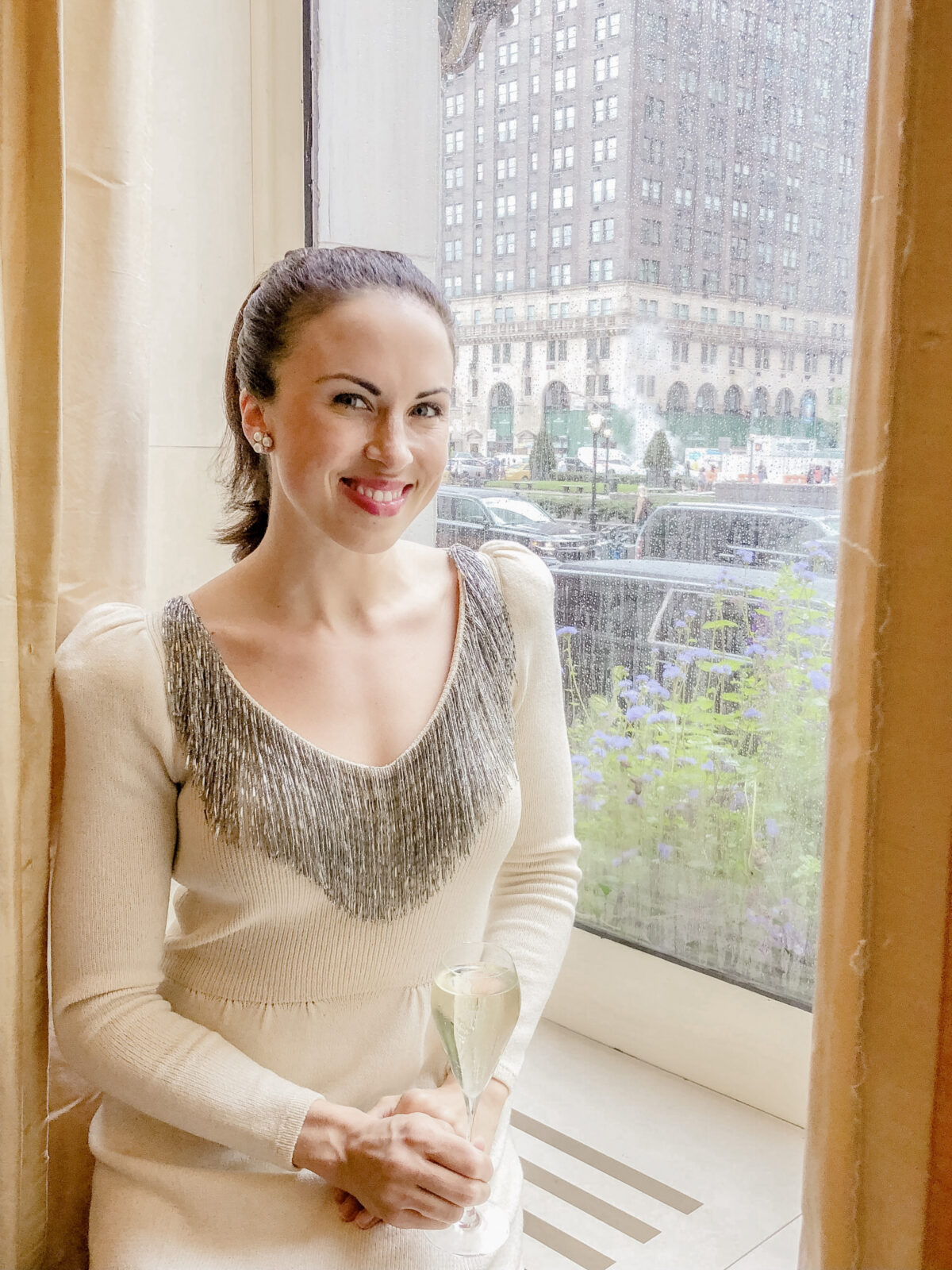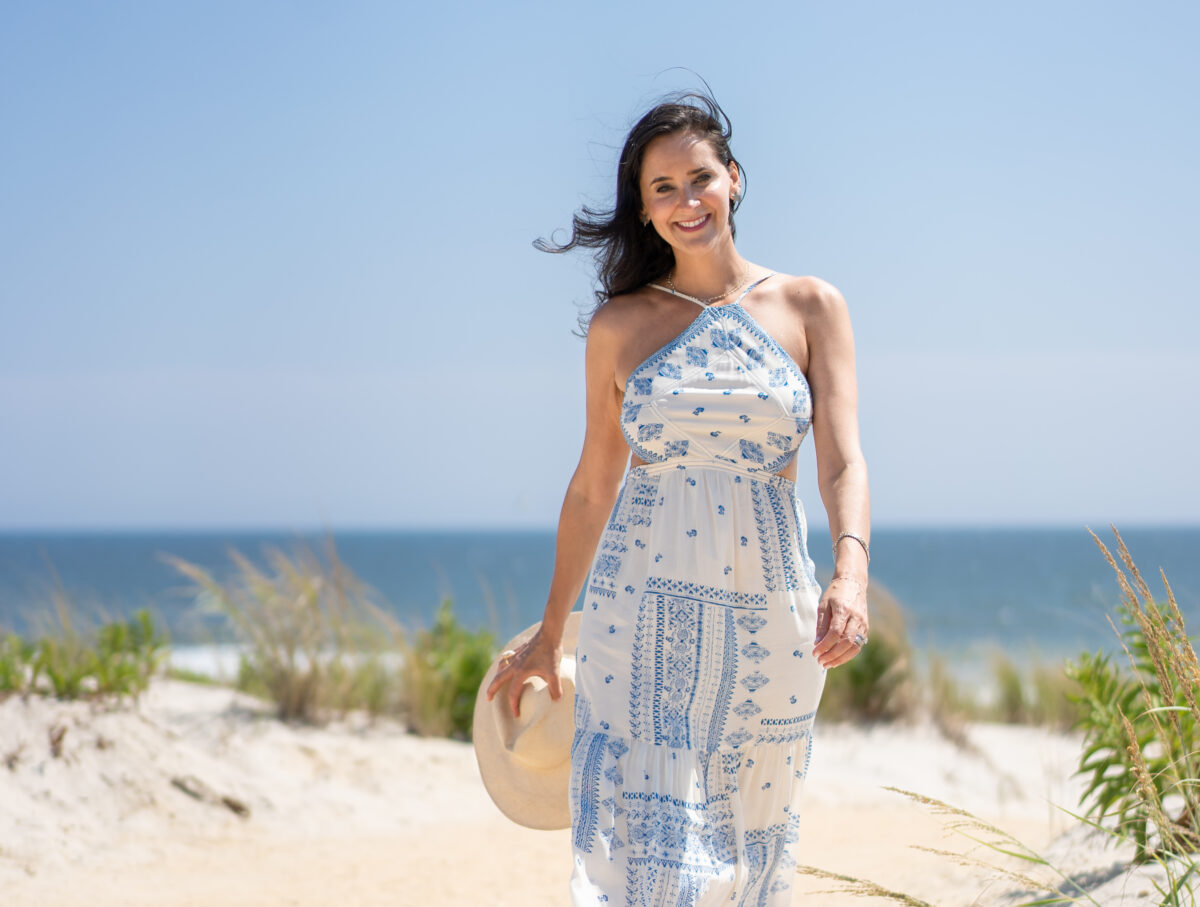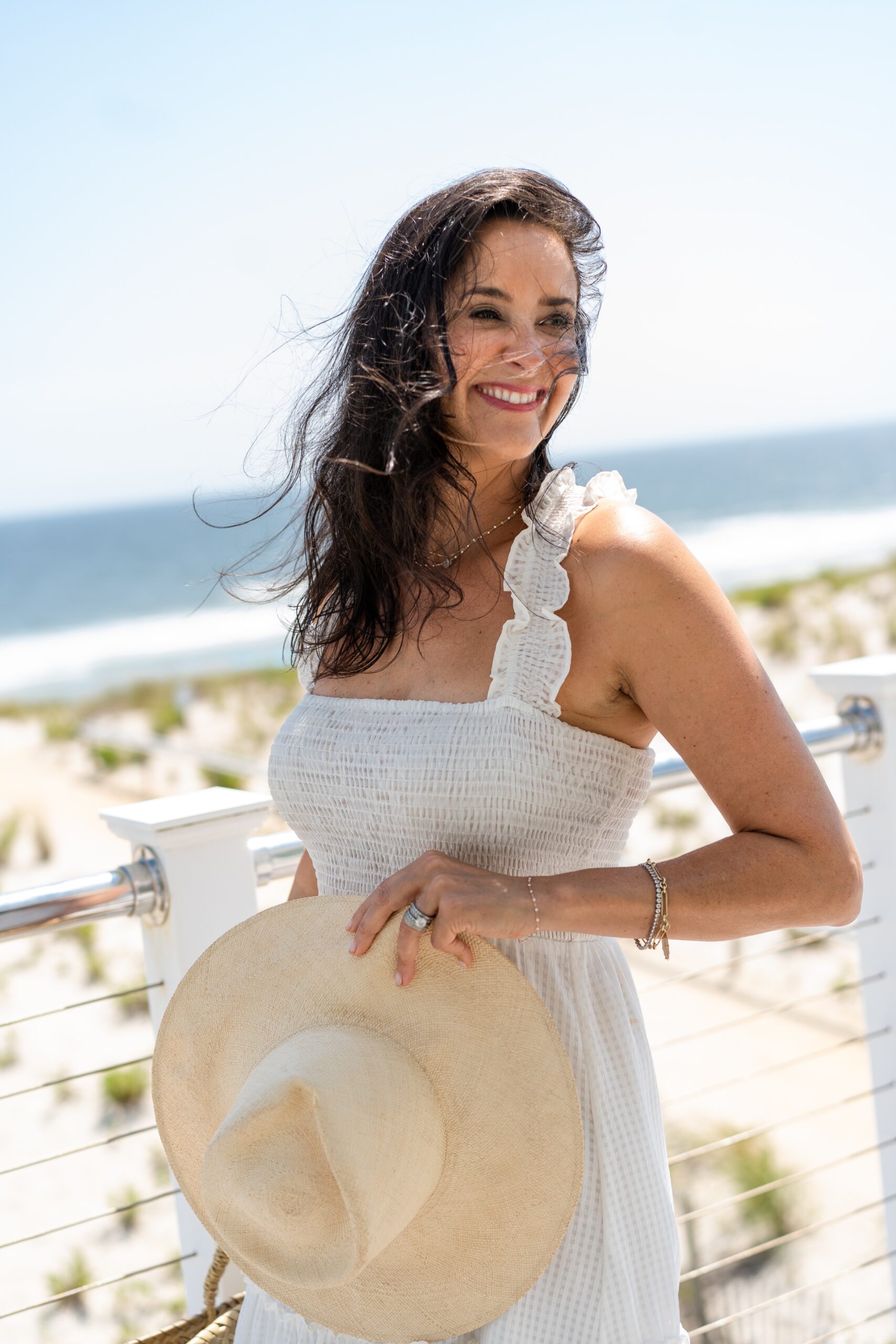Myka Meier, founder of Beaumont Etiquette and the Plaza Hotel Finishing Program, knows first-hand that knowledge of the codes of etiquette does not come automatically. “If anyone can learn it, I can!” she laughed. Bright-eyed, lively, and smiling, her exquisite poise is familiar to anyone who has watched her short, fun, and informative YouTube videos. Despite having a natural grace that many might consider unattainable, Meier’s humor and openness gives her warmth and makes her relatable—and makes the rules of etiquette seem easy.
She believes that they are! She offers classes through her New York-based international etiquette school; has a YouTube channel providing tips on how to tie a scarf, how to withdraw from toxic relationships, and how to drink tea properly; and has published two books on etiquette, the first of which sold out in 24 hours. Her business is thriving, and people are hungry for more. So, what is she teaching, and how is she teaching it, that makes something apparently so old-fashioned seem relevant, meaningful, and necessary?
Etiquette is for Everyone
The word “etiquette” can seem intimidating, stuffy, old-fashioned, and overbearing. And yet, in the West, we look to certain figures with pride and perhaps even reverence for their poise, control, and perfect grace. Princess Diana, bending sweetly to take the hand of a child in India; slender Kate Middleton, seated with her legs slanted off to the side. If we love to observe these people, then perhaps we do not find grace, poise, and good manners so stuffy after all. Do we, in fact, wish to be more like them ourselves?
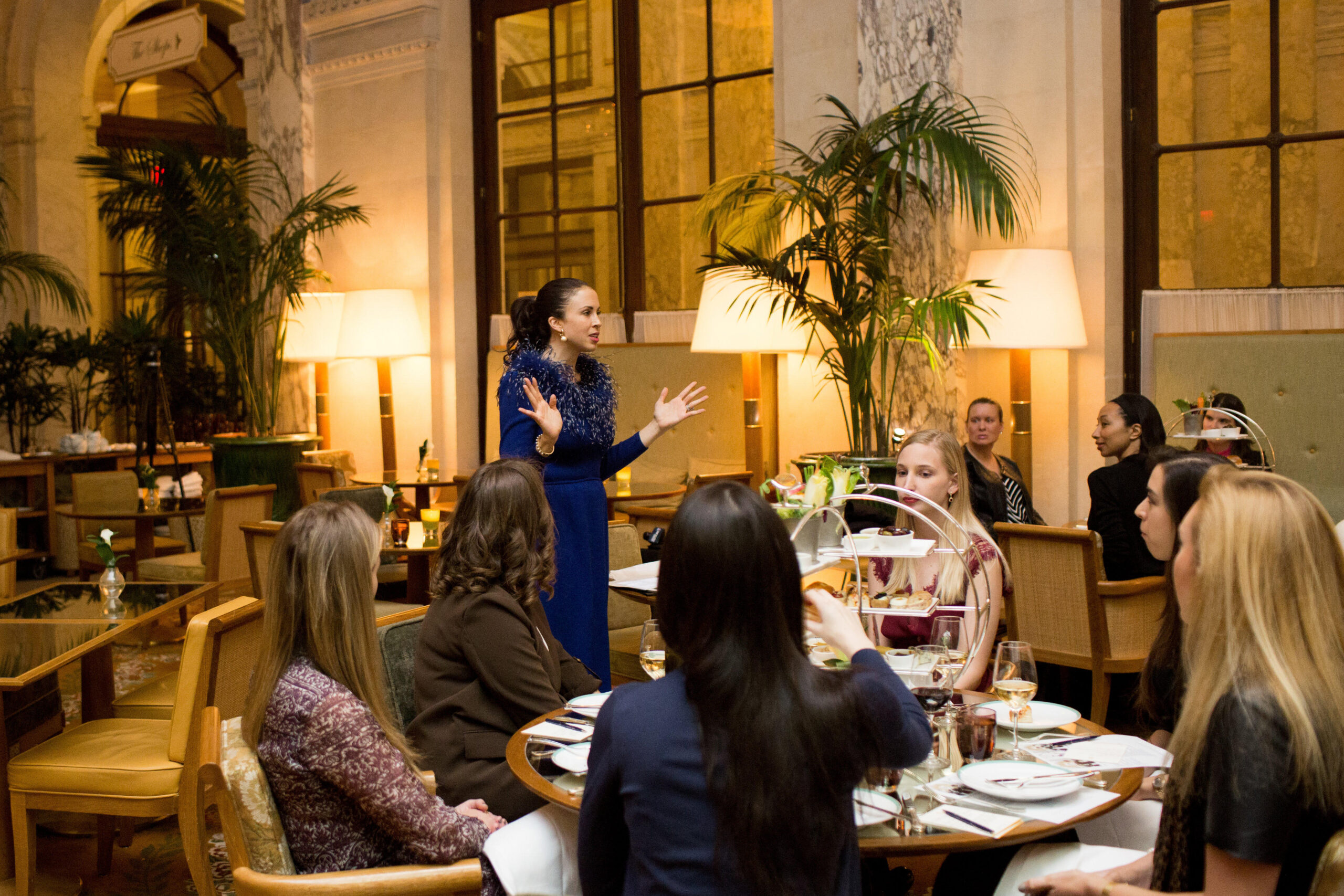
Meier’s approach to etiquette is the opposite of stuffy and overbearing. With her wide smile, she laughed and told anecdotes of social blunders she has made. She referenced pop culture and celebrities to keep her content up-to-date. She gave classes fun names, like “The Duchess Effect.” But more importantly, she has an underlying guiding philosophy that people are keen to hear.
For Meier, at the heart of good manners, poise, and grace is compassion and respect for others. Yes, you might be impressive at your next job interview, but what you’re really signaling with your polish is kindness, care, and consideration for the people around you. She said, “You’re doing what is the most respectful, kind, and considerate thing in that moment—it’s about emotional intelligence.”
It was emotional intelligence that made Meier want to learn more about etiquette. She was living in London, the only American working in a British company, and she realized there was a kind of unspoken code of behavior that was foreign and mysterious to her. In a desire to feel more comfortable and avoid social gaffes that created awkward situations, she took her first etiquette class. “I must have made every mistake in the book,” she laughed.
She was astonished at how much more confident she felt after taking etiquette classes, and she noticed how, once she stopped feeling so shy and anxious in social situations, other people around her seemed more at ease as well. One of her teachers had been Princess Diana’s aide, “and she taught me all the things that she taught Diana, and I thought, wait a second, here I am, just a middle-class American practicing something that I thought you had to be a princess to learn.”
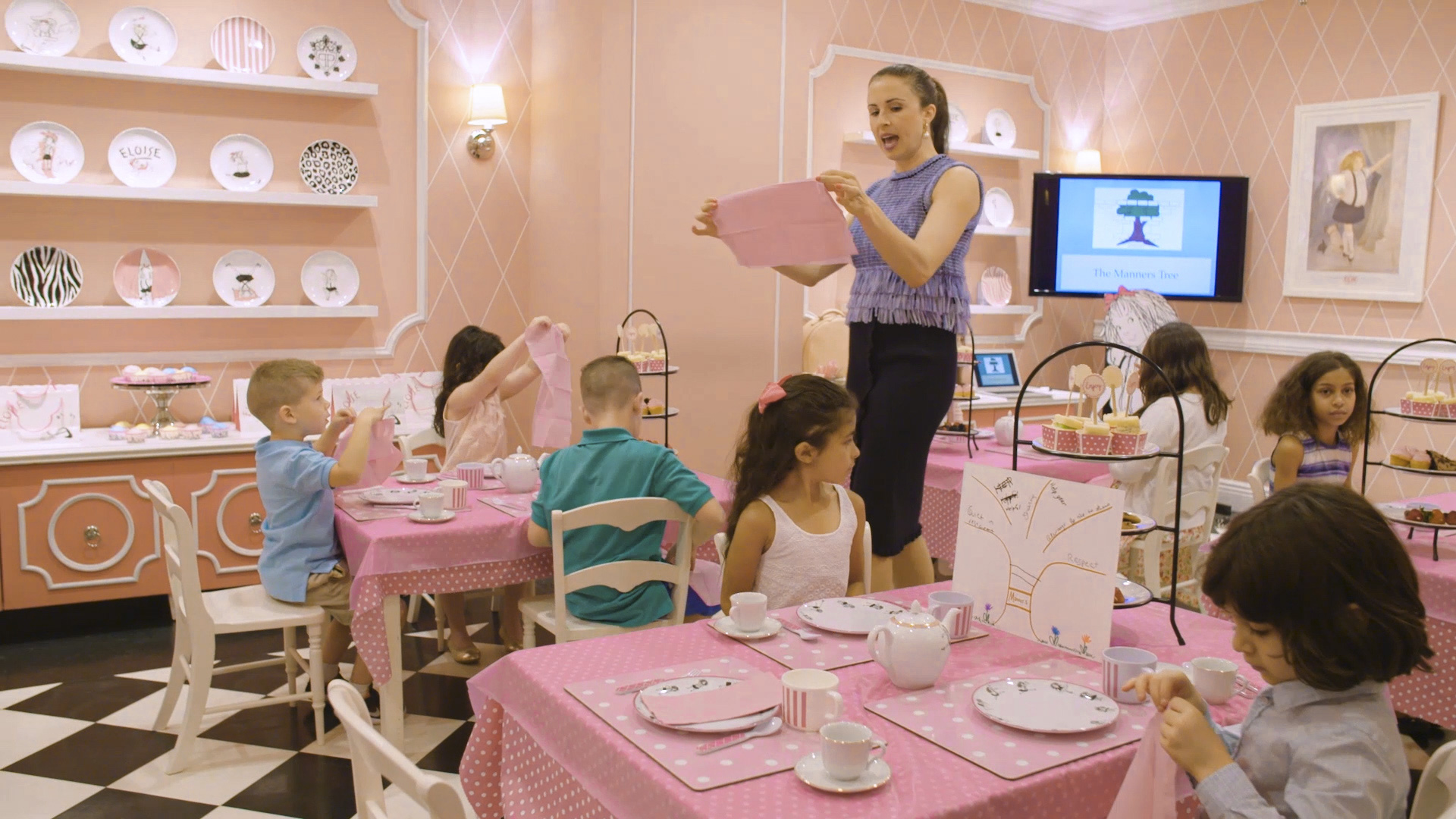
Once she saw that etiquette was something anyone could learn, and that it was fun and transformative, she started holding fun cocktail parties for her girlfriends and teaching them tips. And word spread. “Soon enough,” she recalled, “we would have massive dinner parties where I was teaching everybody over dinner the correct formal etiquette. I thought you had to be born with it. But I realized that etiquette is just about kindness, and showing respect and consideration. Anyone can learn this.”
She started Beaumont Etiquette in London first, and in 2014, she opened an office in New York. In 2016, she partnered with the iconic Plaza Hotel in New York, and the Plaza Hotel Finishing Program was born. “I love doing this,” she said. “I teach confidence through etiquette.”
For etiquette classes to be appealing in America, she said, they have to be relevant, approachable, and relatable. She started her classes by creating a judgment-free zone where people can ask her anything. She told her classes to forget everything they think they know about etiquette: “I want to retrain everyone in here to think about this social skill set in a new way.”
How Etiquette Works
The word “etiquette” comes from the French royal courts of the 17th and 18th centuries. When Louis XIV’s gardener realized that aristocrats were trampling his gardens, he put up signs, “etiquets,” to tell people to keep off the grass. Later, the idea expanded to social events, where the signs told people where they should not stand or what they should not touch. “So,” Meier explained, “historically, it was about showing respect in a social environment. Now, fast forward to today. Really, it’s the same. It’s about showing someone through your actions, and your interactions, and your words, that you are there in a peaceful and friendly spirit, and that you want to do what will make them feel most comfortable.”
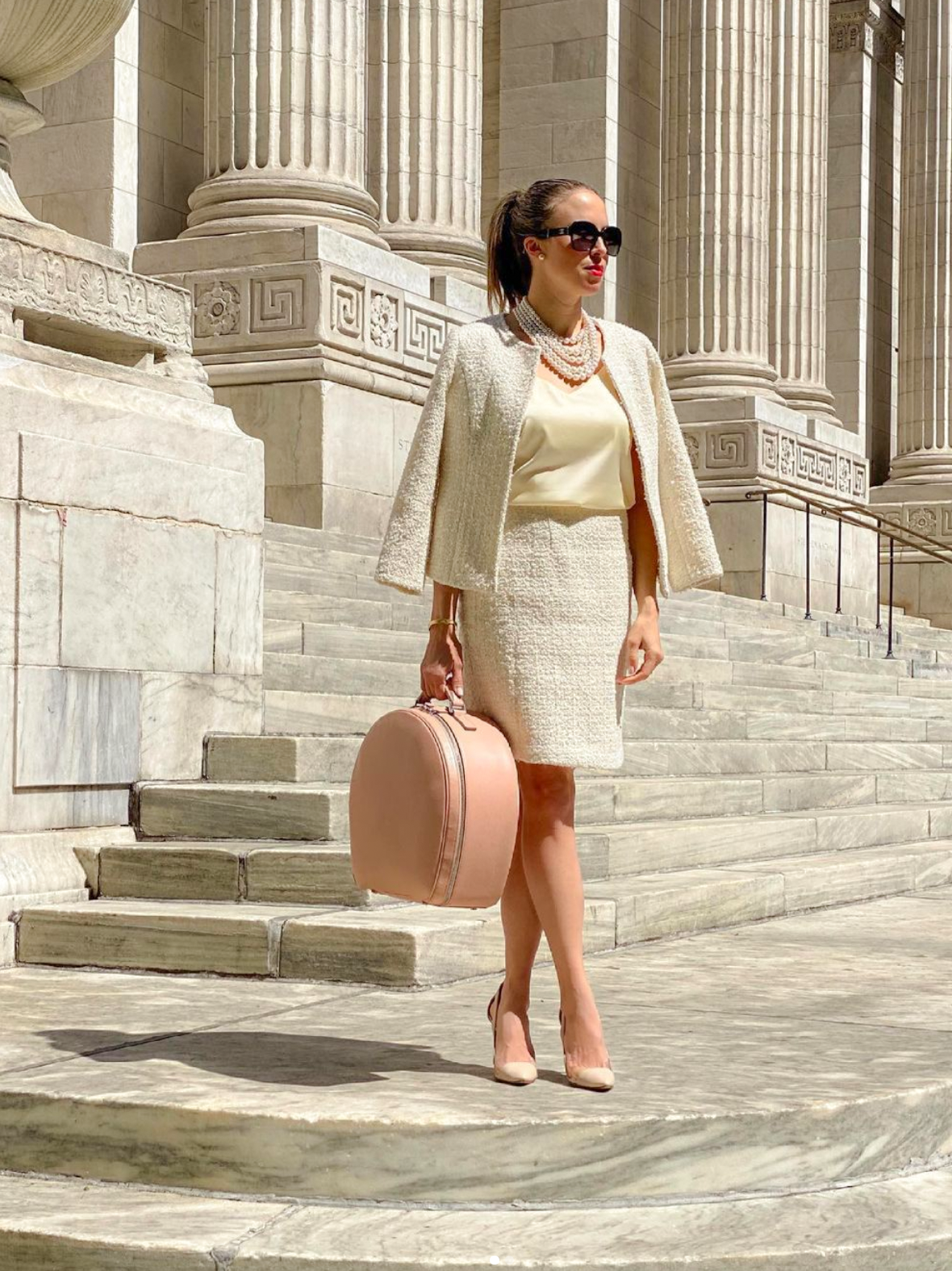
Meier’s approach teaches people techniques that they can put into practice immediately and use every day. “There’s no point in teaching a skill set that you use once a year,” she said. Her classes offer people real-life tips that can change the way they interact with people and their environment immediately.
For example, she teaches the “WWHC” formula for starting a conversation anywhere with anyone. First, ask a question beginning with “what.” Follow with a question beginning with “why,” and then one starting with “how.” Give the person you are talking to a break from questions by following up with a compliment. This shows how closely you’ve been listening to their answers and how appreciative you are of what they said. By this time, conversation should be flowing nicely, and you’ve put the other person at ease.
Similarly, making an effort to dress nicely when you are meeting someone not only makes you feel good and well put together, but it also shows the other person that you put thought and care into your appearance. Dressing nicely can be as simple as wearing an ironed shirt, tying a bright scarf around your neck, or slipping on high heels.
“Please just relax, have fun,” Meier said. “This is a judgment-free zone, you can ask me anything.” Within the first five minutes of her classes, she takes the intimidation factor out of etiquette lessons by getting people laughing: “I usually crack some kind of joke to make people feel comfortable or give an awkward story or scenario that happened to me, just to make them say, ‘Oh, okay, she’s normal.’” In human interactions, it is normal to want to set others at ease, and following the rules of etiquette is the way to do it.
From January Issue, Volume 3

